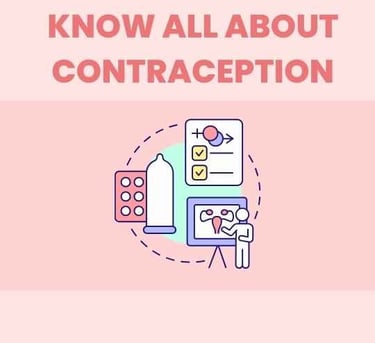"Comprehensive Women's Health Guide at Healthopathy"
Welcome to the Women's Health section of Healthopathy. Here, we believe every woman should have access to comprehensive, up-to-date, and accurate health information. We cover everything from pregnancy care, sexual health, and disease prevention, to post-pregnancy care. Our aim is to empower women to make informed decisions about their health and wellbeing.


Menstrual Health
Understanding your menstrual cycle is a cornerstone of women's health. We provide detailed insight into the stages of the menstrual cycle, symptoms of disorders, and treatment options.
Key Highlights:
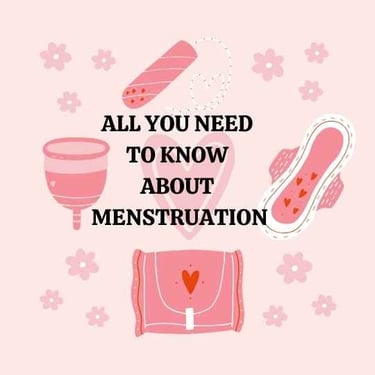

Pregnancy Care
Understanding your body during pregnancy can help ensure the health of both mother and baby. We cover topics like nutrition, exercise, prenatal checkups, and mental health during pregnancy.
Key Highlights:
Antenatal care
Nutrition
Exercise
Prenatal Checkups
Mental Health and pregnancy


Female Sexual Health
Sexual health is a vital part of overall wellbeing. Our resources provide guidance on sexual health issues specific to women, including libido, reproductive health, and sexual dysfunctions.
Key Highlights:
Reproductive Health
Sexual Dysfunctions


Contraception
Choosing the right contraception is a personal decision. We offer a comprehensive guide on various contraception methods, their effectiveness, and possible side effects.
Key Highlights:
Contraception Methods
Birth Control
IUDs
Contraceptive Pills
Sterilization


Sexually Transmitted Diseases in Females
Information about sexually transmitted diseases (STDs) can protect you and your partner. Here, we share knowledge about common STDs, their symptoms, and prevention methods.
Key Highlights:
STDs
Disease Prevention
HIV
HPV
Chlamydia
Herpes
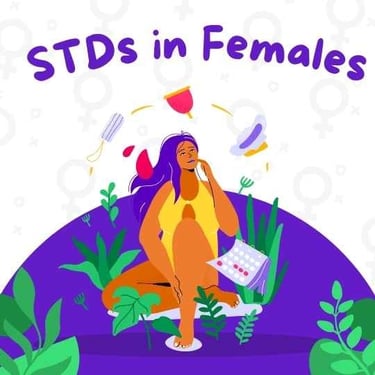

Post-Pregnancy Care
The postnatal period requires specialized care for new mothers. We discuss postpartum depression, breastfeeding, body changes, and more, to help women navigate this stage.
Key Highlights:
Postnatal Care
Postpartum Depression
Breastfeeding
Body Changes


Breast Health
Breast health is important at all stages of a woman's life. Learn about breast self-examinations, symptoms of breast cancer, and how to maintain breast health.
Key Highlights:
Breast Self-Examination
Breast Cancer
Mammogram
Mastectomy
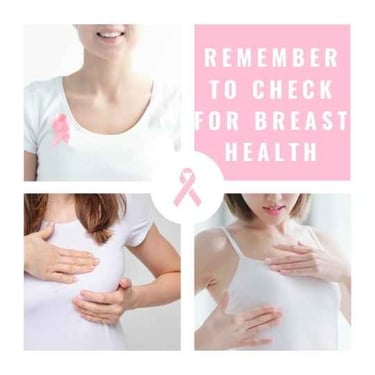

Women and Bone Health
Women are at a higher risk of developing osteoporosis. Discover how to strengthen your bones, the importance of calcium and vitamin D, and how lifestyle can impact bone health.
Key Highlights:
Bone Health
Osteoporosis
Calcium
Vitamin D
Exercise
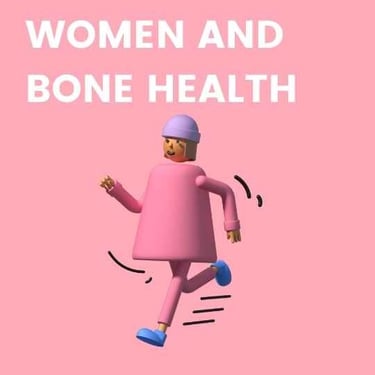

Frequently asked questions-HerSexualHealth
What causes pain during sex?
Pain during sex (also known as dyspareunia) can be caused by various physical or emotional factors, including vaginal dryness, infections, pelvic floor disorders, endometriosis, or past trauma. Treatment depends on the underlying cause and may include medication, physical therapy, or counseling. Learn More
Is it normal to have a low sex drive?
Yes, it’s completely normal for sex drive to vary at different times in life. Factors such as stress, hormonal changes, medications, relationship issues, or health conditions can affect libido. If you’re concerned, a healthcare provider can help identify the cause and suggest options. Learn more
How can I improve vaginal health?
Maintaining vaginal health involves proper hygiene, avoiding harsh soaps or douches, practicing safe sex, wearing breathable underwear, and staying hydrated. Regular gynecological checkups are also important to detect and prevent issues early. Learn more
Can birth control affect my sexual desire or function?
Some hormonal birth control methods may affect libido in certain individuals. If you notice changes in your sexual desire or function after starting birth control, speak with your healthcare provider to explore alternative options. Learn more
How often should I see a gynecologist?
Women should generally see a gynecologist once a year for a routine exam. However, the frequency may vary based on age, medical history, and symptoms. Regular screenings (such as Pap smears and STI testing) are essential for long-term health. LEARN MORE
What are common signs of a sexually transmitted infection (STI)?
Many STIs show no symptoms, but common signs may include unusual discharge, itching, burning during urination, or sores. Regular testing and practicing safe sex are key to prevention and early treatment. LEARN MORE
Is it safe to use lubricants?
Yes, personal lubricants can enhance comfort and pleasure during sex. Choose water-based or silicone-based lubricants, especially if you are using condoms. Avoid products with added fragrances, glycerin, or harsh chemicals to reduce irritation. LEARN MORE
What is vaginal rejuvenation, and is it safe?
Vaginal rejuvenation refers to treatments that aim to improve vaginal tone, tightness, or appearance. Some procedures are non-surgical (like laser or radiofrequency treatments), while others involve surgery. Always consult with a qualified provider to understand the risks and benefits. LEARN MORE
Get in touch
Share with visitors how they can contact you and encourage them to ask any questions they may have.


